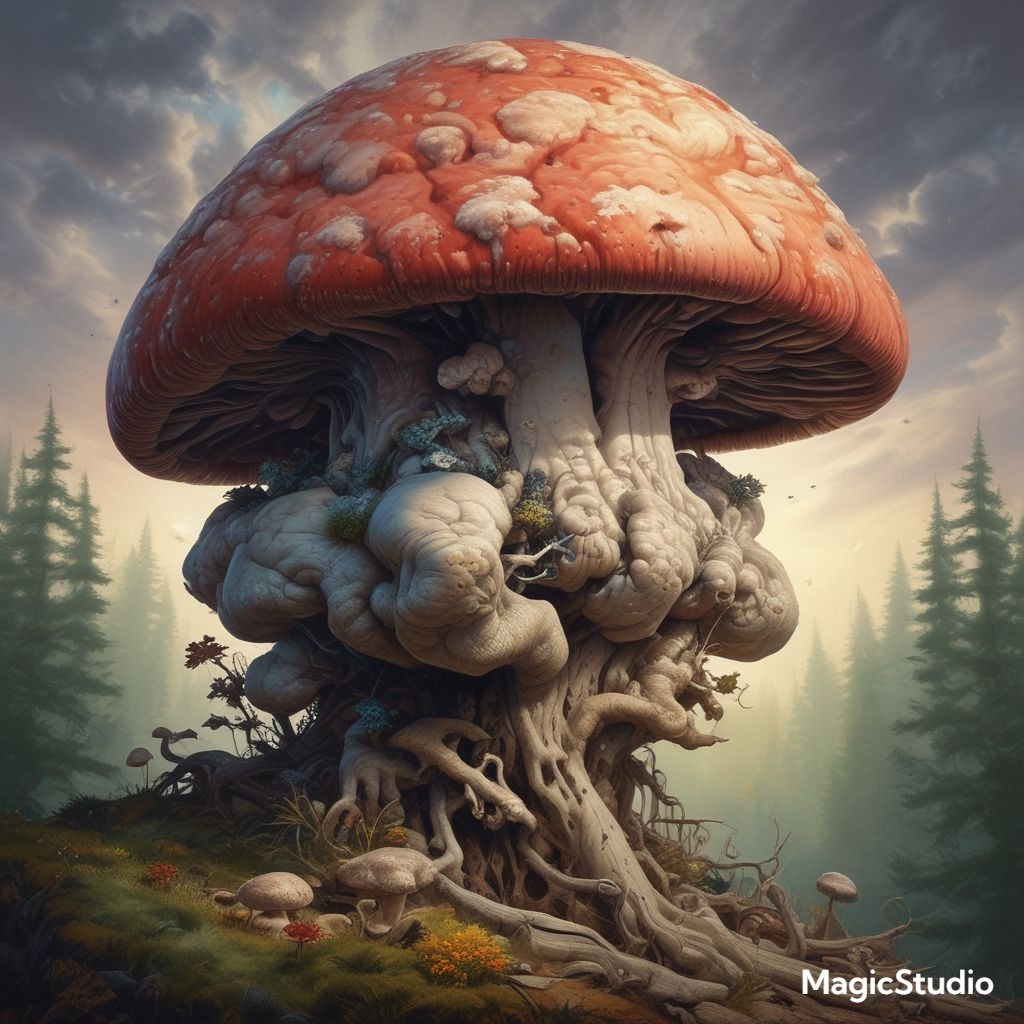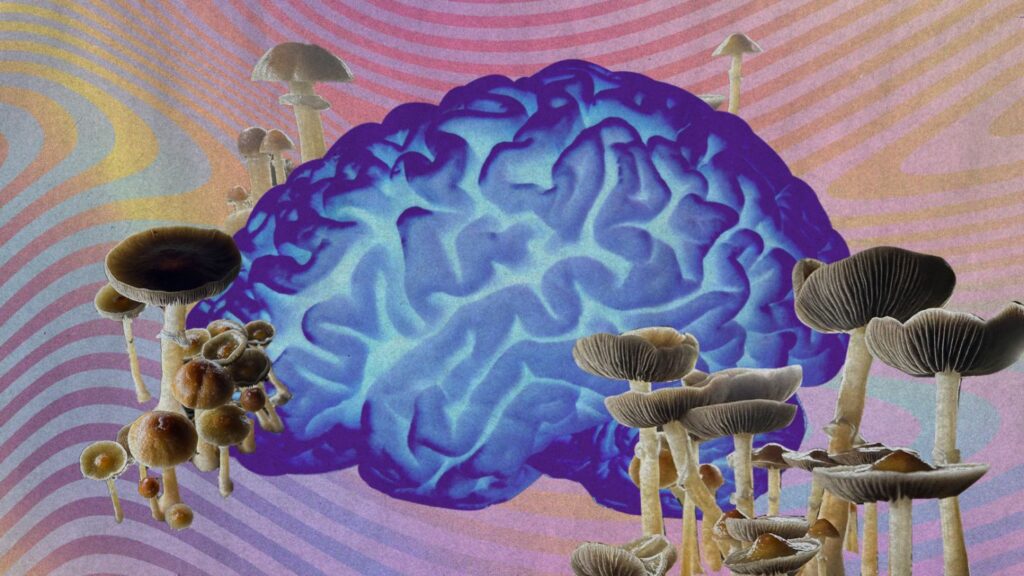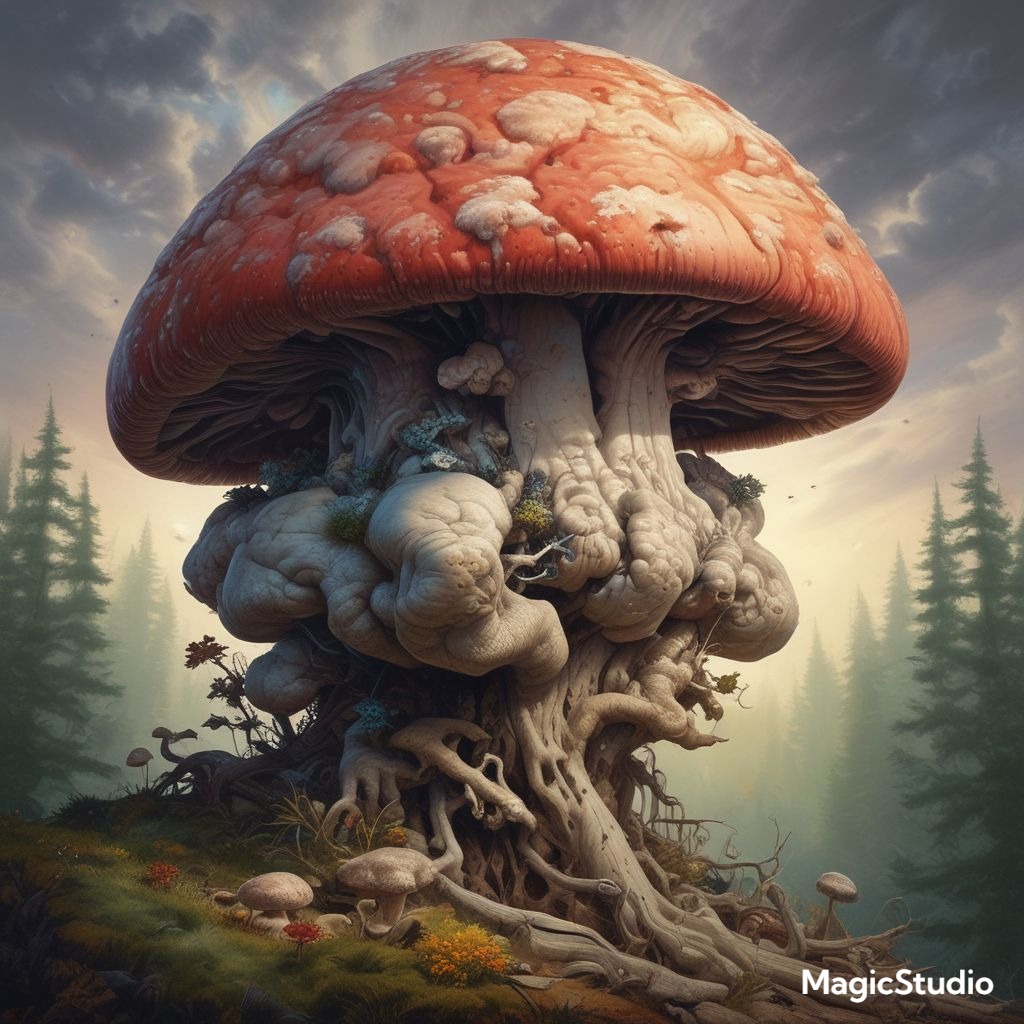
In recent years, there has been a resurgence of interest in the therapeutic potential of psychedelics, particularly psilocybin, a natural compound found in certain mushrooms. With mounting evidence suggesting its efficacy in treating depression and anxiety, psilocybin is not only challenging traditional notions about mental health treatment but also offering hope to those suffering from debilitating conditions.
What is Psilocybin?
Psilocybin is a naturally occurring psychedelic compound that belongs to the tryptamine family. It is primarily found in over 200 species of mushrooms, commonly referred to as “magic mushrooms.” Upon ingestion, psilocybin is converted into psilocin, which interacts with serotonin receptors in the brain, particularly the 5-HT2A receptor. This interaction alters perception, mood, and cognitive processes, resulting in the characteristic psychedelic experience.

How Psilocybin Rewires the Brain
The Neurobiological Mechanisms
Research suggests that psilocybin has profound effects on brain connectivity and neural plasticity. The following points outline some of the neurobiological mechanisms through which psilocybin operates:
1. Increased Neural Connectivity: Psilocybin promotes synaptogenesis, where new connections form between neurons. This increased connectivity can enhance communication within and between different brain networks.
2.Default Mode Network (DMN) Disruption: The DMN is associated with self-referential thought, often tied to rumination—a hallmark of anxiety and depression. Psilocybin reduces activity in the DMN, allowing individuals to break free from negative thought patterns.
3. Heightened Emotional Processing: By facilitating a greater emotional openness, psilocybin allows patients to confront and process difficult emotions in a controlled environment, thus aiding in therapeutic outcomes.
4. Neurotransmitter Dynamics: Psilocybin influences the release of various neurotransmitters, including serotonin and dopamine, which play critical roles in regulating mood and emotional responses.

Clinical Evidence
Several studies have demonstrated the efficacy of psilocybin in clinical settings:
– A 2020 study found that psilocybin significantly reduced symptoms of depression and anxiety in cancer patients.
– Research from Johns Hopkins University revealed that patients receiving psilocybin treatment experienced rapid and sustained reductions in depression, with a majority reporting significant improvements for up to six months post-treatment.
Conclusion
Psilocybin presents a fascinating and promising frontier in mental health treatment, offering hope to those burdened by depression, anxiety, and other psychological disorders. With its ability to rewire the brain and promote profound emotional experiences, it stands at the intersection of neuroscience and psychology. As more research surfaces and clinical use becomes more structured, psilocybin may not only reshape how we understand mental health treatment but also pave the way for new avenues of healing. With further investigation and open-mindedness, psilocybin indeed transform lives, providing relief and a sense of renewal for those ready to embark on this intriguing journey.






